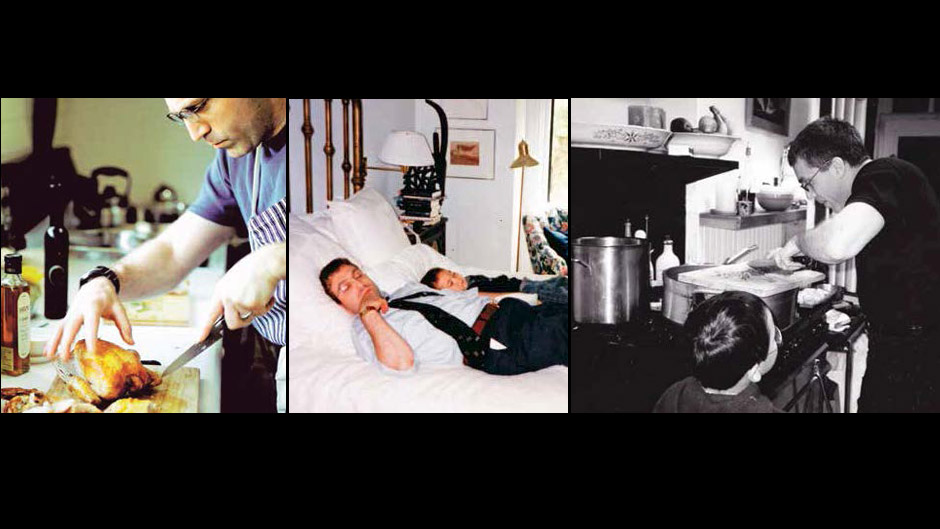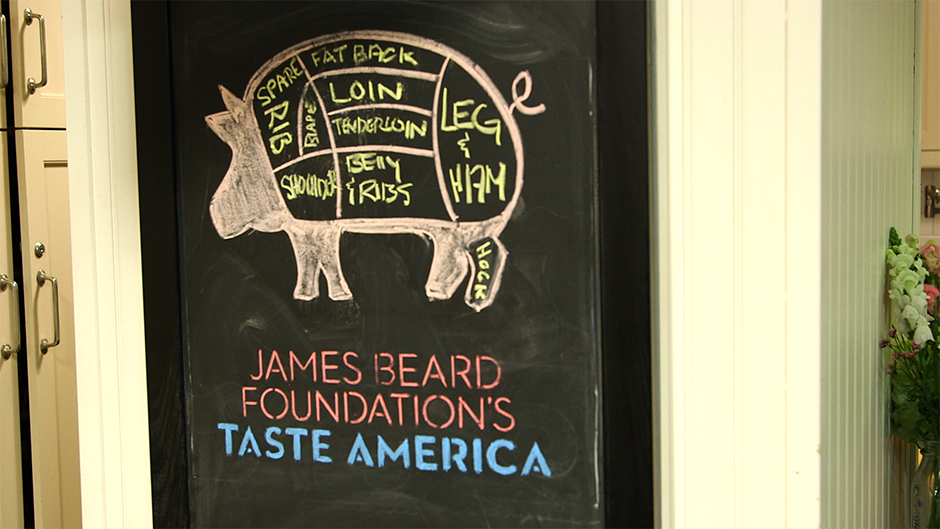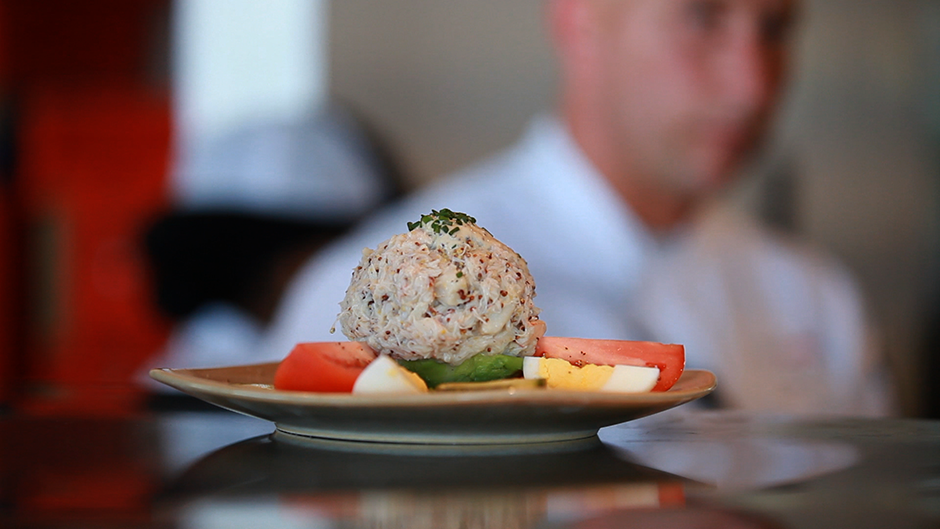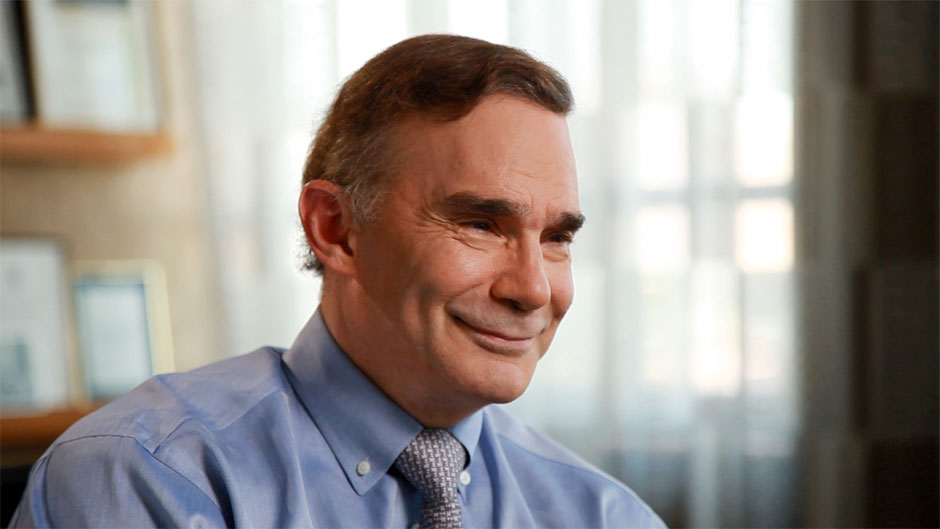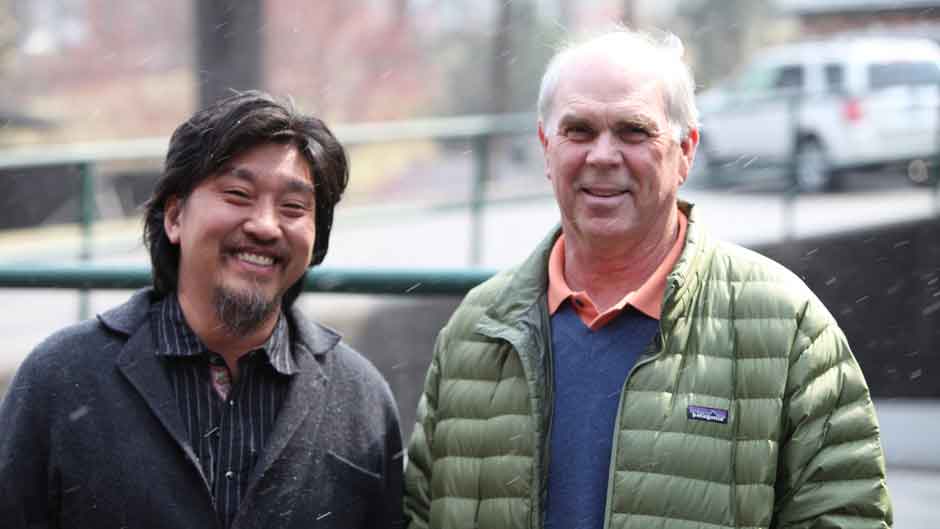Nowadays, there are hundreds and hundreds of cooking schools to choose from, and more than enough has been written about what it’s like to be a culinary student, a cook, and a chef. When I was looking to get into the business, however, there were only a few options. I applied to the Culinary Institute of America in New York, got in, and moved back east with Tami. We got married on May 10, 1992.
The curriculum at CIA was focused almost exclusively on French, Austrian, and German technique. Back then, as far as cooking schools were concerned, the only people who knew how to cook were French and German people.
I sucked at cooking school, just like I sucked at regular school.
As exciting as it was to be thinking about and tinkering with food every day, I was still the same obstinate student I’d always been. I irritated my classmates (a bunch of rednecks, I thought), and after a few weeks almost no one was speaking to me. I didn’t even attend my own graduation. But I’m still glad I went. It gave me my first taste of cooking in professional kitchens, and I loved it.
While I was still in school, I got an externship at Bobby Flay’s Mesa Grill, and for a brief time I was part of the hottest new restaurant in New York. Flay was a superb manager, working with his staff in a way that made a huge impression on me. He never yelled, and when he was angry he took care of it privately. He had good advice for me: “Keep your mouth shut, pay attention, help out wherever you can, and everyone will want to teach you.” The cooks were all tremendously talented. It wasn’t until I was in that kitchen that I really began to understand the fundamentals of cooking — seasoning, grilling, roasting, braising, sautéing.
After graduation in 1993, most of my classmates sought out jobs at fine-dining places in Manhattan. I had a friend who went to Le Bernardin, another who went to Daniel. I got a dream job: Lutéce, one of the greatest French restaurants in the United States — a Times four-star restaurant for almost thirty years, with virtually no turnover in staff. When I was a little kid, my parents told me that Lutéce was the best restaurant in New York. Whenever they’d take us out to eat, without fail I’d say, “Can we go to Lutéce?!” Of course, we never did, but it still felt like I was coming full circle when I got the job there. Nobody in my family could believe it.
At Lutéce, I was surrounded by outstanding cooks who were mature and confident enough to share their wisdom and advice.
My job was to assist the sous chef, Bill Peet (who remains a great friend and source of inspiration). But the most important lessons I learned at Lutéce were about hospitality. Lutéce was like no other restaurant in the country for one simple reason: André Soltner, the chef and proprietor. Soltner was king of the New York fine-dining scene. Heads of state, movie stars — they all flocked to Lutéce. Every day, at the beginning of both lunch and dinner service, he would be waiting at the door in a stark white chef’s jacket, a neckerchief crisply knotted around his neck, greeting customers as they came in. Every morning he was in promptly at nine, without fail. At early morning sessions, he would check the reservations and make sure we were prepared for his regulars: Mrs. S loves steak tartare; Mr. Head-of-a-Large-Corporation wants apple tart — be sure to have one ready.
I spent two transformative years at Lutéce. When it was time for a change in scenery, I started cooking all around Manhattan. All the stories that had made me apprehensive about the restaurant business were true: the grueling hours, burns and cuts, screaming chefs, coming home greasy and stinking of fish. But I also acquired a skill that I had sorely lacked my entire life: I learned how to suck it up. The Japanese refer to this notion as gaman, and it’s a skill that is absolutely necessary to survive more than five minutes in a professional kitchen.
Most surprisingly, I found that I loved it. I loved the intensity. I loved having to do twenty things at once. I loved the pace. Pushing through pain was exhilarating. I’d traded in my confused, meandering days for ones filled with purpose. That’s what’s great about cooking: you focus on the task at hand, and then you move on to the next one. You’re too busy to get lost in your own thoughts or feel sorry for yourself.
But line cooking is a young man’s game. I was in my thirties. I was married. And in 1996, I became a father. Tami gave birth to our son, Isaac, in February of that year, on what turned out to be the most wonderful day of my life.
While Tami was pregnant with Isaac, I interviewed for a line-cook job at Union Square Cafe. The chef was also fascinated with Japan, and we had an interesting conversation. I did a trial and he offered me the main sauté position. The pay was $400 a week gross, meaning $250 take-home, with no benefits to speak of. I wanted to continue moving up the cooking ladder, but now I had a family to support. I thanked the chef, but told him I just couldn’t live on $250 a week.
So I went corporate.
I started working for Restaurant Associates, a well-known restaurant company that also provides corporate dining services for businesses and museums. Cafeterias ranging from upscale to downscale — that sort of thing. I became the executive chef for a boutique investment firm. My work schedule went from long nights, weekends, and holidays, six days a week, to a predictable 6 a.m. to 2 p.m., Mondays through Fridays, with insurance, bonuses, and an expense account. My little café served breakfast and lunch to 250 every day, and was a safe zone for a lot of stressed-out people. In that environment, it dawned on me how much food means to people. I listened to complaints, I built trust, and I did my best to make everyone happy. I nurtured a feeling of warmth in the dining room, and served the most delicious food I could.
Isaac was born a month or two after I started at the firm. Fine-dining restaurants don’t ordinarily have enough money to take care of their staffs — it’s just a fact of the business. Many chefs and owners would love to pay a guy for paternity leave, or let him stay home to watch the kids while his wife is sick, but they just can’t; there’s enough money for one salary, and if you can’t come in, they have to find someone else. But Restaurant Associates gave me a week off when my son was born, a luxury that most restaurants would balk at, especially for a new hire.
Sometimes I think back and wish I’d sucked it up a little longer and taken that job at Union Square Cafe, or worked at another place and built up my cooking chops a bit more. I wonder if I could’ve used another year or two of toughening up. There are a lot of wonderful things about working in a premier restaurant in New York. When things are clicking, you’re turning out great food and the newspapers are all singing your praises. If you’re on a good team, there’s an inimitable camaraderie. Like any fine-dining cook, I daydreamed about running my own kitchen and cooking my own food. As a chef now, I still feel defensive about my decision to leave the grind for a corporate dining job. But I made a tough choice for my family, and ultimately, it was the right one.
Things were humming along. Life was never better. I was settled at work and at home. Isaac had turned two, and Tami was five months pregnant with our second child. We’d just sold our apartment and were preparing to move into a cute three-bedroom house with a backyard in Mamaroneck. My immediate family all lived close by. Our apartment was stocked to the ceiling with boxes in preparation for the move.
Then, in three short days, my entire world crashed down around me.
On a Tuesday, Tami went to a trade show at the Javits Center and came home with a chill. Over the phone, the obstetrician recommended she just try to get some rest, but her condition continued to worsen. We finally talked the doctor into seeing us at the hospital. When we got there, they admitted Tami into the obstetrics department rather than emergency — which turned out to be a tragic mistake. By noon on Friday, she had miscarried — we lost our daughter. Within another hour, Tami’s condition had deteriorated even further.
One after another, her organs began shutting down. She went into a coma at three in the afternoon. The inexperienced obstetrician hadn’t recognized the signs of toxic shock, and now it was too late. I went home and held Isaac and cried myself to sleep. Tami passed away the next day.
She was the first woman I’d ever loved, and I think she was the first to ever love me. Until we met, I had always been rebellious, immature, and unsettled. She was powerful, decisive, and focused, and she made up for all the things that I lacked. In the ten years we’d been together, I’d gone from being a confused, aimless kid in Tokyo to a husband, a father, and a chef. Losing Tami was devastating. In a horrifying flash, I’d become a single dad grieving the loss of his wife and unborn daughter.
But I was also in the best situation one could hope for under such terrible circumstances. The truth is that much worse things happen to people who are less well equipped to cope with loss. I still had a beautiful, healthy son and owned a nice apartment. I worked a steady job for a company that gave me time off to sort out my life. I could afford a nanny, and my parents lived down the block. I would walk over there every day and have meals with them, and they would help with the kid.
I was brokenhearted, but tried to remain grateful and strong for Isaac, who had just lost as much as I had, if not more. I like to think I rose to the occasion. I reinvented myself for him and, thanks to my supportive family, we both slowly recovered. Learning to adapt after Tami’s death made me into a man. Being a single father beat any lingering irresponsibility out of me. After a couple of years went by, I began to feel the rhythm of life as a single parent.
The one thing I couldn’t replace was our family’s cultural connection to Japan. With Tami gone, I missed the Japanese part of my life. We had spoken Japanese in the house, and our home had a Japanese energy to it. I wanted Isaac to have that culture in his life. So six months after Tami passed, I made my first extended trip back to Japan in almost ten years.
(Reprinted with permission from Ivan Ramen by Ivan Orkin © 2013. Published by Ten Speed Press, a division of Random House, Inc.)
Ivan has generously shared with Food Thinkers 2 Recipes. Make sure you check out his Chile Mazamaen recipe and his Shio Ramen recipe along with this video about the importance of the slurp!

